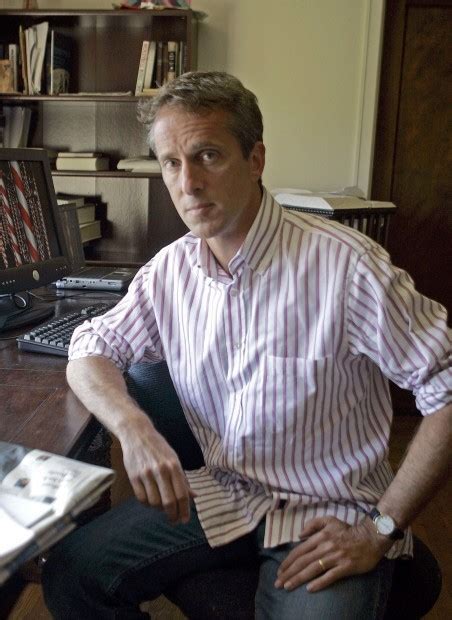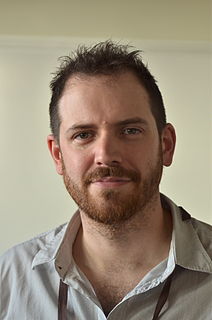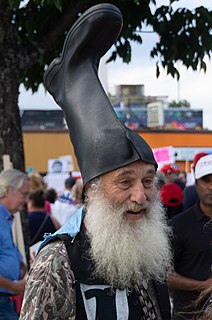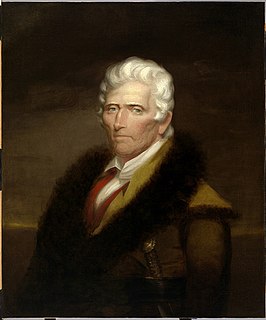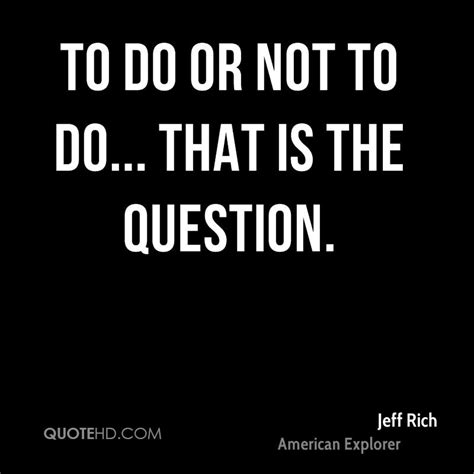A Quote by Jacques Yves Cousteau
The sea, the great unifier, is man's only hope. Now, as never before, the old phrase has a literal meaning: we are all in the same boat.
Related Quotes
However fragmented the world, however intense the national rivalries, it is an inexorable fact that we become more interdependent every day. I believe that national sovereignties will shrink in the face of universal interdependence. The sea, the great unifier, is man's only hope. Now, as never before, the old phrase has a literal meaning: We are all in the same boat.
But there's the rub. The present can never deliver one thing: meaning. The way of happiness and meaning are not the same. To find happiness, a man need only live in the moment; he need only live for the moment. But if he wants meaning--the meaning of his dreams, his secrets, his life--a man must reinhabit his past, however dark, and live for the future, however uncertain. Thus nature dangles happiness and meaning before us all, insisting only that we choose between them.
The only sin is limitation. As soon as you once come up with a man's limitations, it is all over with him. Has he talents? has heenterprise? has he knowledge? It boots not. Infinitely alluring and attractive was he to you yesterday, a great hope, a sea to swim in; now, you have found his shores, found it a pond, and you care not if you never see it again.
Not all paintings are abstract; they're not all Jackson Pollock. There's value in a photograph of a man alone on a boat at sea, and there is value in painting of a man alone on a boat at sea. In the painting, the painting has more freedom to express an idea, more latitude in being able to elicit certain emotion.
All your life spent getting ready for the next thing. I climbed a lot of hills now. I crossed a lot of rivers. Crossed the sea even, left everything I knew and came to Styria. But there I was, waiting for me at the docks when I got off the boat, same man, same life. Next valley ain't no different from this one. No better anyway. Reckon I've learned ... just to stick in the place I'm at. Just to be the man I am.
We speak now or I do, and others do. You've never spoken before. You will. You'll be able to say how the city is a pit and a hill and a standard and an animal that hunts and a vessel on the sea and the sea and how we are fish in it, not like the man who swims weekly with fish but the fish with which he swims, the water, the pool. I love you, you light me, warm me, you are suns. You have never spoken before.
If there is one thing I think I have accomplished, it's that I always thought of myself as a very literal songwriter, and as I look at some of those older records, I don't hear it now the way I did when I was 20. I think it is undeniable that the songs have become more instantaneously descriptive and literal. I'd like the songs to be more storytelling, but also have the turns of phrase within them that would hopefully distance my writing from the pack. I feel like on those older records there are a lot of attempts at clever turns of phrase.
My position is a naturalistic one; I see philosophy not as an a priori propaedeutic or groundwork for science, but as continuous with science. I see philosophy and science as in the same boat--a boat which, to revert to Neurath's figure as I so often do, we can rebuild only at sea while staying afloat in it. There is no external vantage point, no first philosophy.
As I said just now, the world has gone past me. I don't blame it; but I no longer understand it. Tradesmen are not the same as they used to be, apprentices are not the same, business is not the same, business commodities are not the same. Seven-eighths of my stock is old-fashioned. I am an old-fashioned man in an old-fashioned shop, in a street that is not the same as I remember it. I have fallen behind the time, and am too old to catch it again.
It is a curious fact, but nobody ever is sea-sick - on land. At sea, you come across plenty of people very bad indeed, whole boat-loads of them; but I never met a man yet, on land, who had ever known at all what it was to be sea-sick. Where the thousands upon thousands of bad sailors that swarm in every ship hide themselves when they are on land is a mystery.

